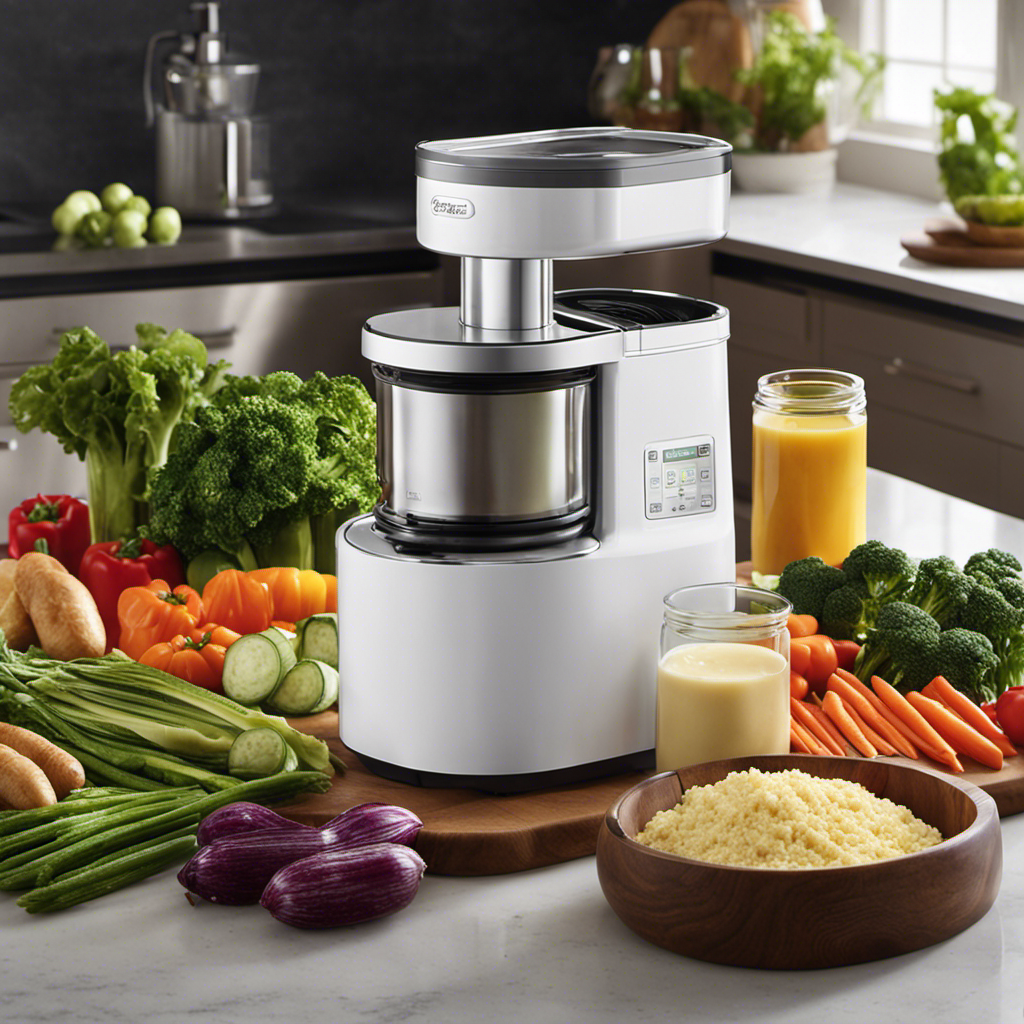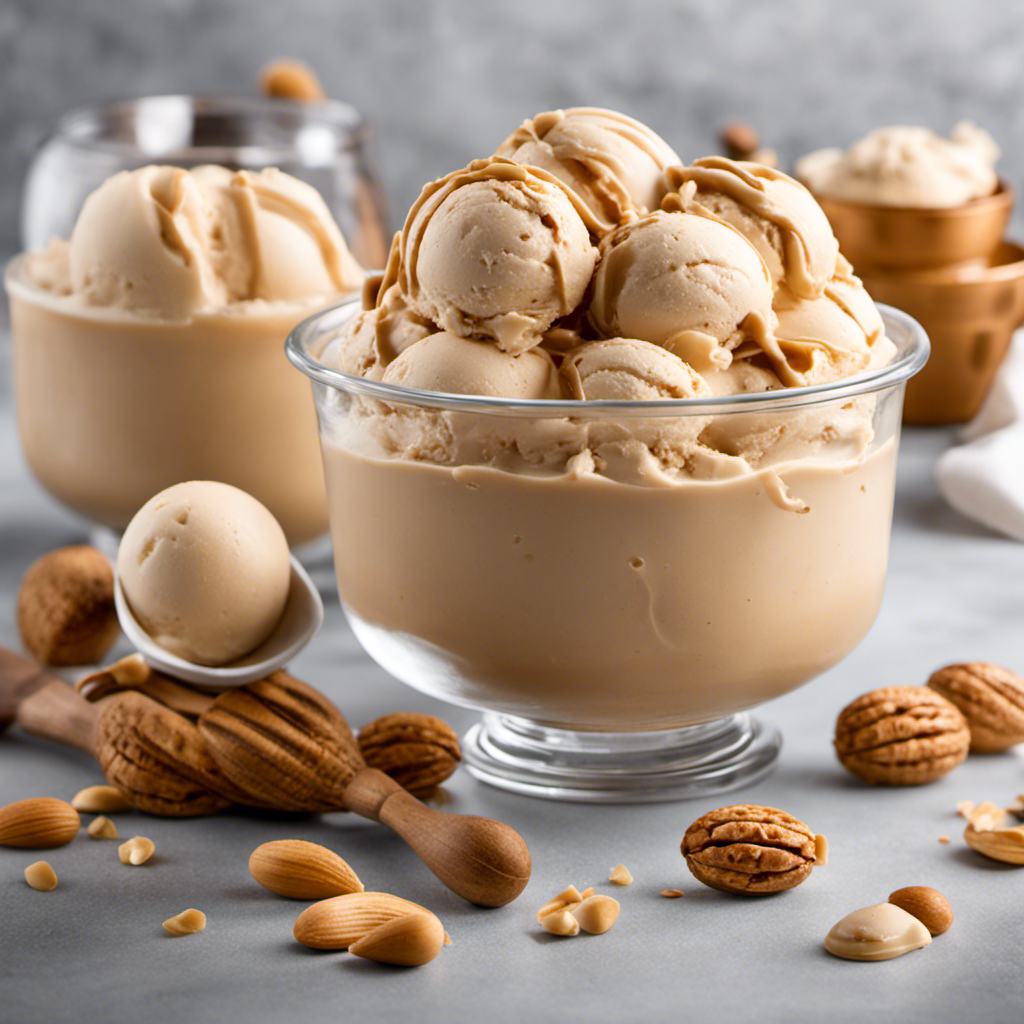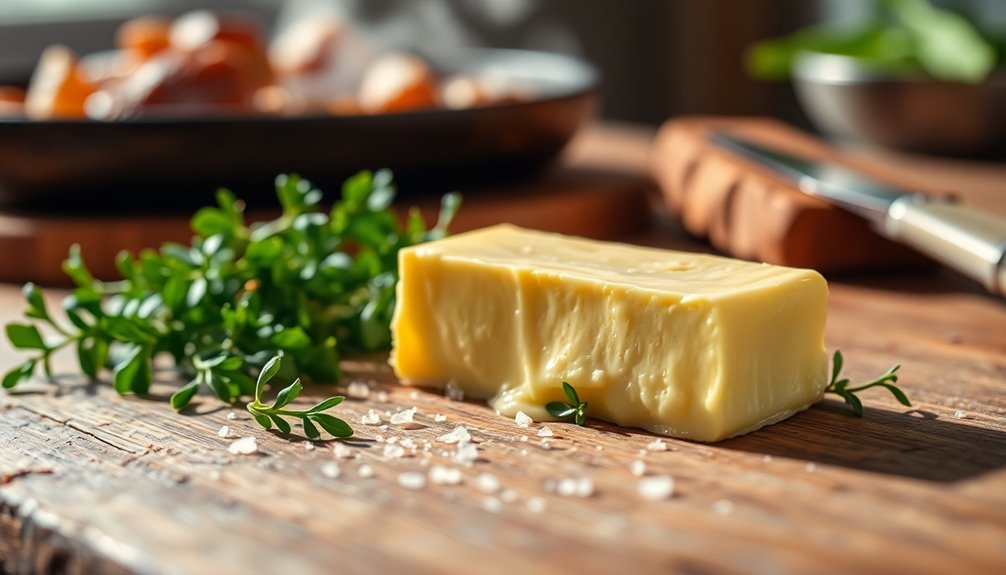As a dedicated user of the Magic Butter Maker, I recognize the significance of selecting the correct oil for the best outcomes. This article will help you navigate the realm of oils, from comprehending smoke points to discovering different flavor profiles.
We will also delve into health considerations and discover vegan and plant-based options. Additionally, I will share tips on creating infused oils and using specialty blends.
Get ready to elevate your Magic Butter experience with the perfect oil choices.
Key Takeaways
- Consider factors such as smoke point and flavor profile when choosing the right oil.
- Different extraction methods, such as cold pressing and solvent extraction, affect the quality and composition of the oil.
- The quality of the oil directly affects the taste and potency of your magic butter.
- Experimenting with different oils can create a wide range of delicious infused butter or oils.
The Importance of Choosing the Right Oil
When choosing the right oil for your magic butter maker, it’s important to consider factors such as smoke point and flavor profile. Understanding oil extraction methods and the impact of oil quality on the final product is crucial.
There are different methods used to extract oil from various sources, such as cold pressing, solvent extraction, and heat extraction. Each method affects the quality and composition of the oil.
Cold pressing, for example, preserves the natural flavors and nutrients of the source material. On the other hand, solvent extraction may result in a purer oil but could potentially leave behind harmful residues.
The quality of the oil directly affects the taste and potency of your magic butter. As such, it is vital to choose an oil that aligns with your desired flavor profile and meets your extraction method preferences.
Understanding Smoke Points: Which Oil Works Best
When it comes to cooking, understanding the optimal oil smoke points and choosing the right oil is crucial for achieving the best results.
The smoke point of an oil refers to the temperature at which it starts to break down and produce smoke.
Different oils have different smoke points, and using an oil with a low smoke point for high-heat cooking can lead to a bitter taste and potentially harmful compounds.
Optimal Oil Smoke Points
The optimal oil smoke points are important to consider when choosing which type of oil to use in your magic butter maker. The smoke point is the temperature at which an oil starts to smoke and break down, affecting both the flavor and nutritional value of your ingredients.
Here are three key points to keep in mind:
-
The best oil for frying should have a high smoke point, such as peanut oil or avocado oil.
-
Consider alternatives to traditional oils, like coconut oil or ghee, which offer unique flavors and health benefits.
-
For a lighter option, try using grapeseed oil, which has a high smoke point and a clean, neutral taste.
Understanding the smoke points of different oils will ensure that your magic butter maker operates efficiently and produces the best results.
Now let’s delve into the process of choosing the right oil for your specific needs.
Choosing the Right Oil
To make the best choice, it’s important to understand the smoke points and flavors of different oils.
When it comes to choosing the right oil for your recipe, temperature control plays a crucial role. Oils have a specific smoke point, which is the temperature at which they start to break down and produce smoke. Using an oil with a low smoke point can result in a burnt and unpleasant taste in your recipe. On the other hand, using an oil with a high smoke point ensures that it can withstand the heat without burning.
Additionally, different oils have distinct flavors that can impact the overall taste of your dish. So, it’s essential to consider the smoke point and flavor profile of oils to achieve the desired flavor and prevent any unwanted burnt tastes.
Exploring the Flavor Profiles of Different Oils
Have you considered trying different oils to explore a variety of flavor profiles with your magic butter maker? It’s amazing how the type of oil you use can greatly impact the taste of your infused butter or oils.
Here are three oils that you can experiment with to enhance your flavors:
-
Extra Virgin Olive Oil: Known for its fruity and peppery flavors, this oil pairs well with herbs and spices. It’s perfect for making infused butter for pasta dishes or drizzling over roasted vegetables.
-
Coconut Oil: With its tropical and nutty taste, coconut oil adds a unique twist to your infused creations. It works well in sweet treats like infused butter for cookies or energy balls.
-
Avocado Oil: This oil offers a buttery and slightly nutty flavor, making it a great choice for savory dishes. Use it to infuse butter for cooking techniques like sautéing or grilling.
By experimenting with these different oils, you can create a wide range of delicious infused butter or oils to elevate your dishes.
Now, let’s move on to the health considerations and explore which oil is the healthiest option for your magic butter maker.
Health Considerations: Which Oil Is the Healthiest Option
When it comes to choosing the healthiest oil, it’s important to consider the nutritional benefits they offer. Oils differ in their nutrient content, with some being rich in essential fatty acids and antioxidants.
Additionally, the smoke point of oils is a crucial factor to consider, as it determines the temperature at which an oil starts to break down and release harmful compounds.
Lastly, analyzing the omega-3 content of oils is essential, as these fatty acids have been linked to numerous health benefits, including reducing inflammation and supporting heart health.
Nutritional Benefits of Oils
Using a variety of oils can provide different nutritional benefits for your body. Oils play a crucial role in a balanced diet as they are a source of essential fatty acids, vitamins, and antioxidants.
Here are three key benefits of incorporating oils into your diet:
-
Omega 6 content analysis: Oils such as sunflower, safflower, and corn oil are rich in omega-6 fatty acids. These fatty acids are important for brain function, hormone production, and maintaining healthy skin.
-
Vitamins and antioxidants: Oils like olive oil and avocado oil contain vitamins E and K, which are important for skin health and blood clotting. They also provide antioxidants that help protect cells from damage caused by free radicals.
-
Heart health: Certain oils, such as canola oil and walnut oil, are high in monounsaturated fats and omega-3 fatty acids. These can help reduce bad cholesterol levels and lower the risk of heart disease.
In the next section, we will explore the concept of smoke point comparison and its importance in choosing the right oil for cooking.
Smoke Point Comparison
To ensure you don’t burn your oil while cooking, it’s important to be aware of the smoke point comparison of different oils.
The smoke point refers to the temperature at which an oil starts to smoke and break down, leading to a burnt taste and potentially harmful compounds.
Oils with a higher smoke point are more suitable for high-heat cooking methods like frying and searing, while those with a lower smoke point are better for low-heat cooking or as finishing oils.
When considering the flavor impact on cooking, it’s important to note that oils with a stronger flavor, such as extra virgin olive oil or sesame oil, can enhance the taste of your dishes, while more neutral oils like canola or vegetable oil allow the flavors of the other ingredients to shine.
Omega-3 Content Analysis
The omega-3 content varies among different oils, so it’s important to choose an oil that is high in this beneficial fatty acid. Omega-3 benefits include reducing inflammation, improving heart health, and supporting brain function. When it comes to omega-3 sources, some oils stand out.
Here are three oils that are rich in omega-3:
-
Flaxseed oil: This oil is a great plant-based source of omega-3 fatty acids. It contains alpha-linolenic acid (ALA), which can be converted into EPA and DHA in the body.
-
Fish oil: Derived from fatty fish like salmon, mackerel, and sardines, fish oil is one of the best sources of omega-3. It contains EPA and DHA directly, making it highly beneficial.
-
Chia seed oil: Another plant-based source, chia seed oil is packed with omega-3 fatty acids, particularly ALA. It also provides additional nutrients like fiber and antioxidants.
Choosing an oil high in omega-3 can help you reap its numerous benefits.
Vegan and Plant-Based Oils: A Guide for Non-Dairy Options
For a non-dairy option with your magic butter maker, you’ll want to consider vegan and plant-based oils. These alternatives provide a delicious and nutritious option for those who prefer to avoid dairy products. Cooking with non-dairy oils opens up a world of possibilities, allowing you to create a wide range of flavors and textures in your infused butters. Below is a table highlighting some popular vegan oil alternatives and their unique characteristics:
| Vegan Oil Alternatives | Characteristics |
|---|---|
| Coconut oil | Rich, creamy texture with a hint of sweetness. Perfect for adding a tropical twist to your infused butters. |
| Avocado oil | Smooth and buttery consistency. Adds a subtle, nutty flavor to your creations. High in healthy fats and vitamin E. |
| Olive oil | Versatile and widely available. Offers a robust flavor profile and a smooth mouthfeel. Perfect for savory infusions. |
| Almond oil | Delicate and slightly sweet. Adds a subtle nuttiness to your infused butters. High in monounsaturated fats and vitamin E. |
With these vegan oil alternatives, you can create a variety of non-dairy infused butters to suit your taste preferences. Now, let’s explore the next exciting topic: infused oils and how they can enhance the flavors of your magic butter creations.
Infused Oils: Adding Flavors to Your Magic Butter
Experiment with different flavors by infusing herbs and spices into your infused oils, allowing you to elevate the taste of your non-dairy creations. The art of flavor extraction can truly transform your dishes, giving them a unique and exciting twist.
Here are three ways to explore unique infusions:
-
Herb-Infused Oils: Adding fresh herbs like rosemary, thyme, or basil to your oils can infuse them with a subtle and aromatic flavor. Simply heat the oil in a saucepan, add the herbs, and let it simmer for a few minutes. Strain the oil to remove any residue and enjoy the herb-infused goodness.
-
Spice-Infused Oils: Spices like cinnamon, cardamom, or chili can bring a bold kick to your oils. Crush or grind the spices to release their essential oils, then mix them with the oil and let it sit for a few hours or overnight. Strain the oil to remove the spices and savor the spicy infusion.
-
Citrus-Infused Oils: Citrus fruits like lemon, orange, or grapefruit can add a refreshing burst to your oils. Zest the fruit and mix it with the oil, then let it sit for a couple of hours to infuse. Strain the oil to remove the zest, and enjoy the citrusy tang in your dishes.
By exploring unique infusions, you can unlock a world of flavors and elevate your non-dairy creations to a whole new level. The art of flavor extraction allows you to customize your oils and create culinary masterpieces that will impress your taste buds.
Specialty Oils: When and How to Use Them
When using specialty oils, you’ll discover that they add a unique and complex flavor profile to your non-dairy dishes. Specialty oils are extracted from various sources like nuts, seeds, and fruits, and each oil brings its own distinct taste and aroma to your culinary creations.
It’s important to know that different specialty oils have different smoke points, which is the temperature at which they start to break down and produce smoke. This is crucial because heating an oil beyond its smoke point can cause it to lose its nutritional benefits and develop an unpleasant taste.
Therefore, it’s essential to choose the right specialty oil for your cooking needs, considering its smoke point and the desired flavor profile for your dish.
Experimenting With Homemade Oil Blends
Creating your own homemade oil blends can be a fun and creative way to infuse unique flavors into your dishes. Not only do homemade oil infusions allow you to experiment with different combinations of herbs, spices, and aromatics, but they also give you complete control over the quality and freshness of your ingredients.
However, it’s important to consider the shelf life of homemade oils to ensure their safety and optimal flavor. Here are a few key points to keep in mind:
- Store your homemade oil infusions in airtight containers to prevent oxidation and preserve their freshness.
- Keep your oils in a cool, dark place to avoid exposure to heat and light, which can degrade the quality of the oils.
- Check the expiration dates of the oils you use as base oils for your infusions, as they will determine the overall shelf life of your homemade blends.
Frequently Asked Questions
How Do I Clean My Magic Butter Maker After Using Different Types of Oils?
After using different types of oils with my Magic Butter Maker, I clean it by following a thorough cleaning process. This involves removing any oil residue from the machine to ensure its proper functioning.
Can I Use Flavored Oils in My Magic Butter Maker?
Using flavored oils in my Magic Butter Maker can enhance the taste of recipes. Infused oils add depth and complexity to dishes, elevating the overall flavor profile. The benefits of using flavored oils in cooking are endless.
What Is the Shelf Life of Infused Oils Made With the Magic Butter Maker?
The shelf life of infused oils made with the Magic Butter Maker can vary depending on the type of oil used and the storage conditions. It is important to follow best storage practices to ensure the longevity of your infused oils.
Can I Reuse the Leftover Oil From the Magic Butter Maker?
I wouldn’t recommend reusing leftover oil from the Magic Butter Maker due to safety concerns. It’s important to ensure the freshness and quality of the oil for optimal results and to avoid any potential health risks.
Can I Use Coconut Oil in My Magic Butter Maker?
Yes, you can use coconut oil in your Magic Butter Maker. It is one of the popular alternatives and has numerous benefits, such as its high smoke point and unique flavor profile.
Conclusion
In conclusion, choosing the right oil for your magic butter maker is crucial to achieving the best results. Understanding smoke points, flavor profiles, and health considerations are all important factors to consider when selecting an oil.
Did you know that using oils with higher smoke points can help prevent your butter from burning? This interesting statistic highlights the importance of selecting the right oil for your magic butter maker to ensure a successful and delicious outcome.
So, next time you’re making magic butter, remember to choose your oil wisely for the best results!










